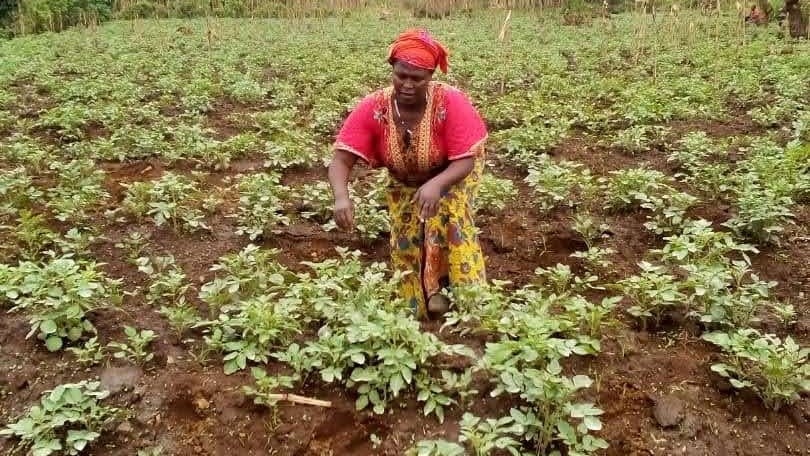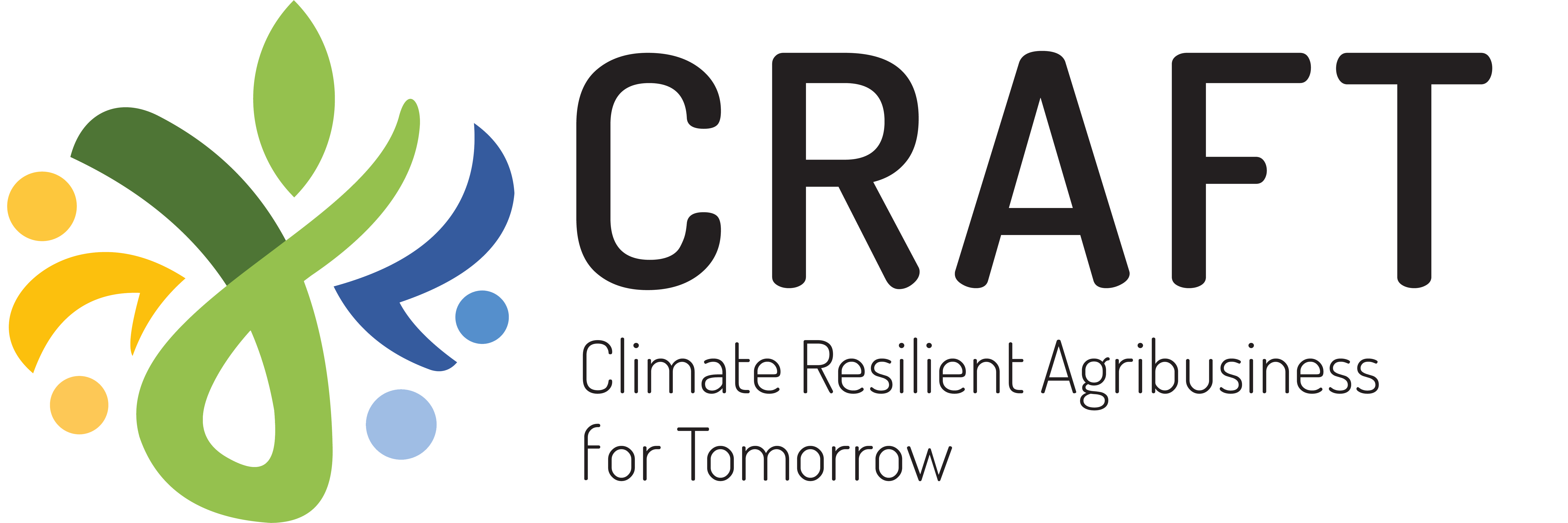Ms Mujawimana, 35, from Nyagatembe village, Muhindura in Kisoro district is a member of Kisoro District Potato Growers Union Limited (KDPGUL), one of the agribusinesses that SNV’s Climate Resilient Agribusiness for Tomorrow (CRAFT) project is supporting to scale adaption of climate smart agriculture (CSA) practices in the potato value chain.
Such CSA Practices and technologies applied by Ms Mujawimana include soil and water conservation measures like digging of trenches and ridges to improve rain/running water trapping and harvesting to improve soils water retention. Adopted and planted improved drought tolerant, early maturing, high yielding potato varieties like Rwangume from Kacwekano, Kabale NARO ZARDI, timely implementation of field activities (planting, weed control, harvesting). She practices crop rotation to break pest cycle and an integrated pest management strategy.
After applying CSA practices in her potato garden - skills she acquired after attending training facilitated by KDPGUL with the support the CRAFT project - she was excited by the resulting increase in production.
“I was motivated by CRAFT trainings to apply business principles to my garden and later realised that through the application of CSA practices, the cost of production reduces, hence making agriculture a lucrative business venture,” she narrates. Last season, Ms Mujawimana harvested 6,000kg of potatoes from half an acre against 300kg or less that she used to harvest from the same piece of land.

Prior to CRAFT intervention, she would spray with any available pesticides, whenever the potatoes were affected by pests and crop diseases, without fully understanding the chemicals she was using. This always resulted in losses, “but now I can easily identify pests, and the right pesticides and agrochemicals to apply, a practise I also learnt from the CSA training,” she states.
Her story is not different from Edward Hategeka who planted one sack of improved Rwangume variety from National Agricultural Research Organisation (NARO) and harvested six sacks of potatoes from a quarter hectare of land, despite the prolonged dry spells that were experienced during flowering. Each sack weighing 80kg was sold at UGX 240,000 (£61) to KDPGUL, and he was able to generate UGX 1,440,000 (£367) from his harvest. Hategeka has now developed his farming practices such that he is now perceived as a model farmer in his village.
In 2021 KDPGUL, with support from the CRAFT project, has trained over 1,500 smallholder farmers (572 men, of whom 197 were youth and 1,009 women, of whom 332 youth) to improve productivity of potatoes through application of climate smart agriculture practices and technologies.









